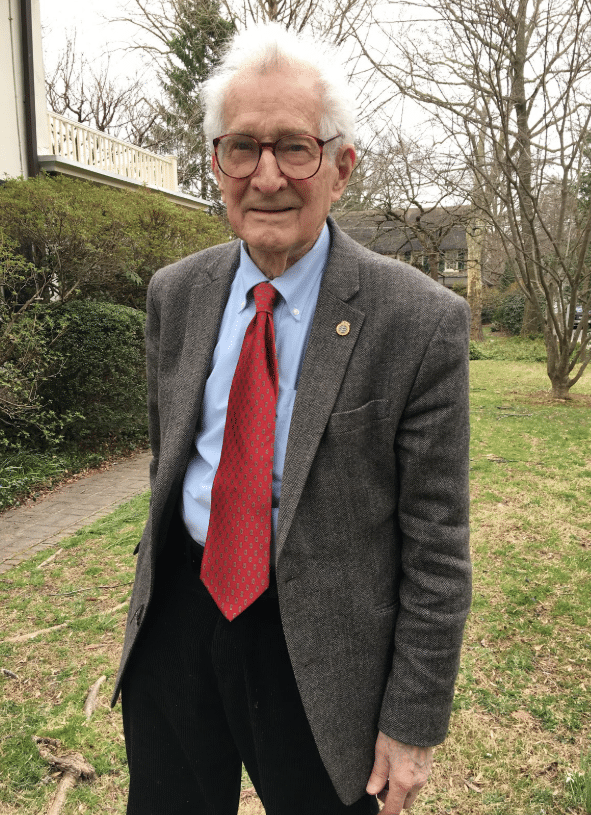
By Sharnita Midgett
Ken Ford, 93, travels an hour from his home to the Perelman Center for Advanced Medicine. He meets annually with his ABC coordinators and clinicians, saying “yes” to MRIs, PET scans and lumbar punctures. He has done this for 13 years, showing up for his appointments and and rescheduling when conflicts arise. Why? Ford is motivated, not by a family history of dementia, but a pure love for science.
“Anything I can do that will contribute to research, I’m happy to do, as long as it’s not too intrusive or too time consuming for me,” Ford said. “I just do my duty. Anything for science.”
Ford met Marianne Watson, the Penn Memory Center’s former senior research nurse, who invited him and his wife to join the ABC study. “My wife and I agreed to do it, and we’ve been doing it ever since,” he said.
Ford graduated from Princeton University in 1953 with a PhD in physics. During his graduate studies, he took a leave of absence to work on the hydrogen bomb. After finishing his studies, he taught at several universities for 30 years and worked as the executive director of the American Institute of Physics. During this time, he wrote 10 books; with topics ranging from quantum physics to flight.
Ford has added proud research participant to his resume, contributing to advancements in Alzheimer’s disease research.
The ABC study collects data from hundreds of participants to help inform us on how the brain changes over time. Each visit, from year 1 to year 13 and beyond, contributes to a future where we understand more about the aging brain and Alzheimer’s disease. Collecting this data requires the work of a physician assistant, research coordinators, psychometric testers and physicians. Because of this, researchers are thrilled when participants like Ford are committed to the study and dedicated to attending every visit.
“The more visits we schedule, the harder it is to coordinate individual visits. Plus, it’s important that we get the data at a regular time and regular intervals,” said Hannah McCoubrey, psychometric tester. Also, most importantly, when a participant misses a visit, “we miss you,” she added.